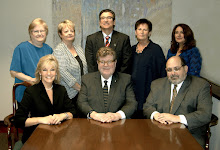Thursday, April 20, 2017
What happens when a doctor medically neglects another doctor?
Estate of John Doe v Medical Institution and Physician
State of Michigan, XXXXXXX County Circuit Court
Regarding Settlement $2,560,000.00 – nondisclosure
Case evaluation amount: $1,100,000.00
Settled following facilitation
Facts:
This is a medical negligence action resulting in the untimely death of a decedent physician. When the decedent, a much-loved and well-respected physician, discovered blood in his stool, he did exactly what he should have. He called a colleague and had both an upper and lower endoscopy performed. When a tumor was discovered in his colon, he immediately contacted a colleague surgeon and asked him to perform surgery. Surgery was performed and pathology determined that it was a curable Stage II colon cancer. Within 36 hours after surgery the decedent had symptoms of severe complications. Tragically, these symptoms were not reported to the surgeon by the staff and as a result a death ensued from septic shock and organ failure.
Subsequent to the surgery, a family friend internal medicine physician, visited the decedent and found him to be stable. On the second day the surgeon saw the decedent and saw he was doing well without evidence of complications. The family friend physician again visited decedent on post-operative day 1 in the afternoon and found decedent was nauseated with abdominal pain with rapid heart rate. By early evening, ominous changes had become evident. There was some confusion as to whether the family friend physician could formally participate in decedent’s care, so the nurses asked the surgeon for a consult so the friend physician could help manage decedent’s pulmonary status. The surgeon did order a bolus infusion and formally requested a consult with the family friend physician. This was the last time any nurse or employee at medical institution or physician contacted the surgeon.
Within an hour, things began to significantly deteriorate. The family friend was in to see decedent and noted he was having shortness of breath. Things went from bad to worse, but still no one called the surgeon.
Despite the obvious decline in the decedent’s condition, it took at least another three hours for anyone to monitor his vital signs. When they were monitored, decedent’s heart was racing, respiratory rate was up and he was administered oxygen. No one called the surgeon. Another 3 hours went by before his vitals were monitored again. He was noted to be diaphoretic and confused. Almost another four hours passed and then the surgeon was notified. By the time the surgeon arrived the following day, decedent was near death. The surgeon immediately recognized sepsis and took decedent to the operating room for exploratory surgery. Within minutes of anesthesia induction, the decedent went into cardiac arrest. He was stabilized and taken to intensive care. As the day progressed, however, the surgeon knew he had to take the decedent back to the operating room to find out what was causing the sepsis. That afternoon the surgeon returned to the operating room and discovered a tear in decedent’s duodenum, which he repaired. Tragically, however, decedent’s body had been overwhelmed by the undiagnosed and untreated sepsis. He went into organ failure despite heroic attempts to save his life. This vibrant man died prematurely in his early 60’s.
This is a claim against the nursing staff and family friend physician for failure to recognize signs and symptoms of sepsis and in failing to notify the surgeon for intervention.
The defendants attempted to blame the surgeon as the cause of decedent’s death, or claimed that it was too speculative to know whether early surgery would have saved him, or that he would have succumbed to the colon cancer. The surgeon’s own testimony was dispositive. Had he been informed of the changes in the decedent’s vital signs, he would have come in and would have operated promptly. There was no negligence on behalf of the surgeon, causing a cut in the duodenum in and of itself. It can occur in the absence of negligence.
Plaintiff’s experts supporting this claim were in the specialty of internal medicine, colon and rectal surgery and a registered nurse, as well as an economist.
Decedent had a successful practice, and had an eminently curable colon cancer. He was survived by his wife, two adult children and grandchildren, who he did assist financially.
Submitted by:
CHARFOOS & CHRISTENSEN, P.C.
DAVID W. CHRISTENSEN P11863
MARY PAT ROSEN P34992
26622 Woodward Avenue, Suite 100
Royal Oak, MI 48067
(248) 399-0350 or (313) 875-8080 / Fax: (248) 399-0351
dwchristensen@c2law.com
mprosen@c2law.com
Subscribe to:
Post Comments (Atom)


No comments:
Post a Comment